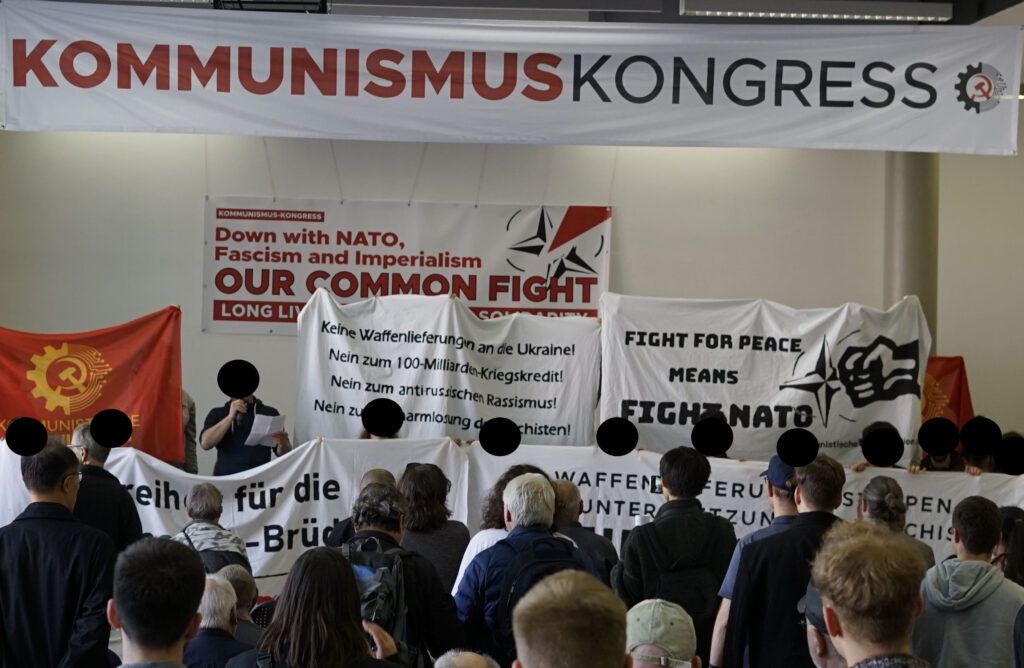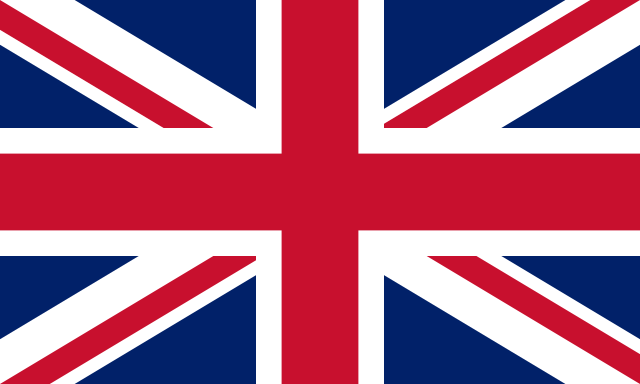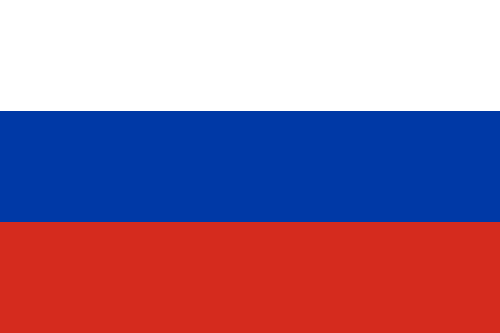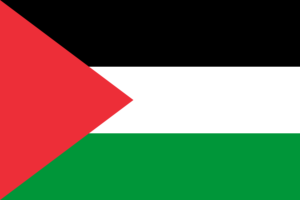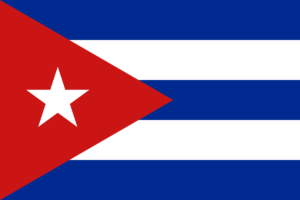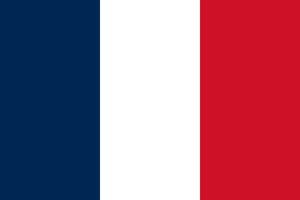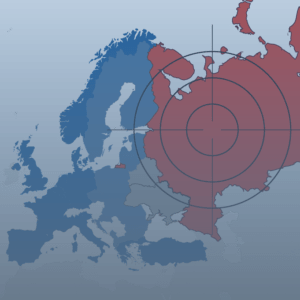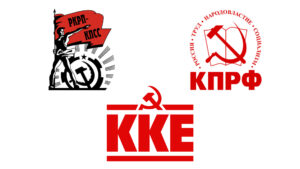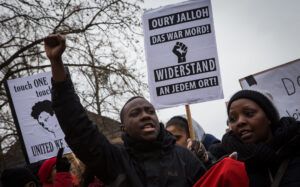Impressions of the Communism Congress 2023

At this year’s Communism Congress, the current tasks and problems of communists on an international scale were discussed intensively for three days. The focal points of the discussions were anti-imperialism, class struggle, national liberation, and ultimately the question of political orientation in these struggles.
With almost 300 guests from the German Communist movement, 22 speakers from Russia, Palestine, Greece, China, South Korea and Great Britain, among others, we tackled these questions of the international workers‘ movement head-on. The Communism Congress was able to send a strong signal for the fight against NATO, for the necessary unity with anti-imperialist movements worldwide, and show how much potential there is in the Communist movement in Germany and internationally. The congress made it clear to us how worthwhile it is to facilitate collective discussions. It became evident that more time for such exchange and discussion would be important in the future and that an intensification of international exchange and cooperation would develop the movement. The panels at the congress showed that there is no established culture of debate among communists, through which concentrated efforts are made to wrestle with different positions. In the moderation, we were not yet successful enough in breaking this up and bringing discussions to a head.
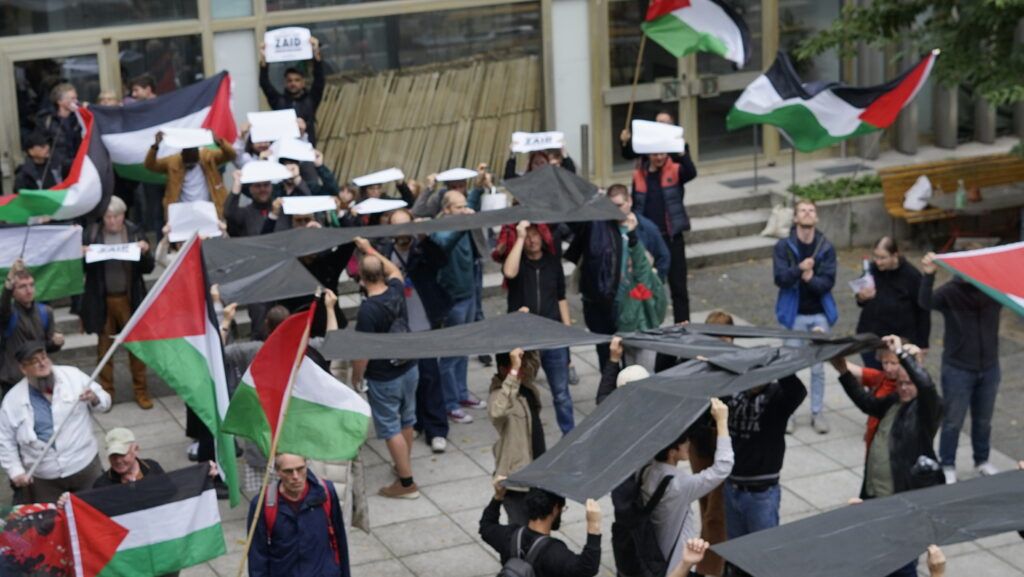
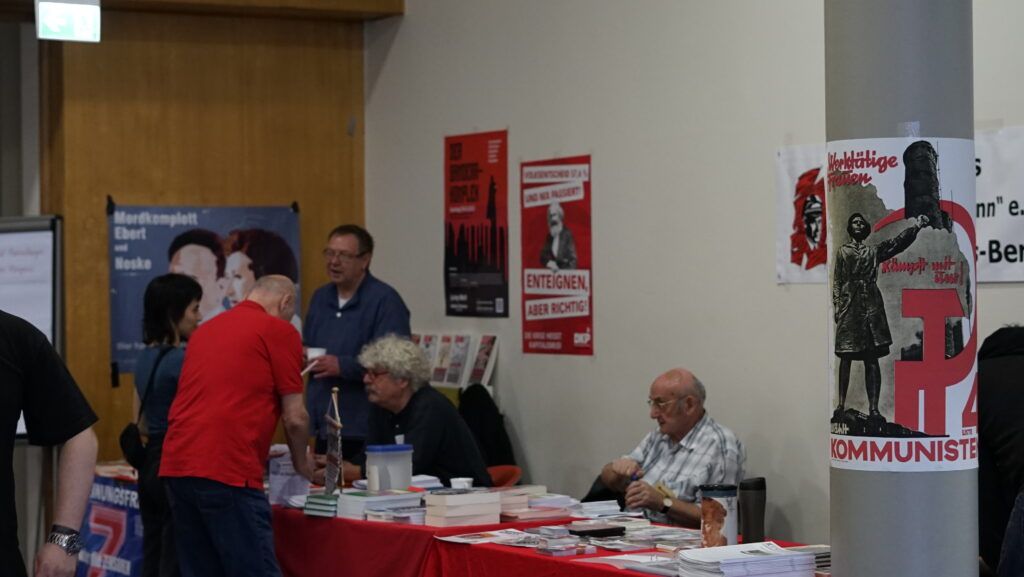
It became clear that the communist movement in Germany is facing some urgent tasks. The disagreement on the question „What to do?“, i.e. how this struggle is to be waged concretely, with whom, with which slogans, how sharply and offensively, shows a certain weakness of the congress and which tasks result from it. In the international communist movement, a consistent anti-imperialist and class-struggle position must be worked out. If the communists want to intervene, influence historical development, and orient the struggles, they must generate clarity in their ranks. They must understand the dynamics of the international class struggle and study the balance of forces comprehensively and precisely, not least of all in Germany.
Many of the presentations can be listened to online here (several in English):
Also on our Spotify-channel:
Political relevance of the congress
The war in Ukraine, the fighting in West Africa, and the al aqsa flood, which began parallel to the congress, are expressions of growing resistance to imperialist expansion and oppression. The growing international conflicts in Europe, Africa and West Asia are increasingly calling imperialist domination into question. Continuing with business as usual seems to be creating more and more complex and difficult problems for the imperialists to control and solve.
At the latest with the start of Russia’s military operation in Ukraine and the practical question of how communists should position themselves in relation to these developments, there have been fierce disputes within the International Communist Movement. Political developments have forcefully imposed a series of questions on the Communist movement that arise in conjunction with the assessment of the Russian action as a justified defensive measure or as an imperialist war of aggression. These include the understanding of imperialism in general and the question of the character of the plundering of oppressed countries by the imperialists. Questions about the international impact of China, as well as the relationship between the USA and its European allies such as Germany, Great Britain and France, are also examples of these debates.
The disputes within the International Communist Movement led to increasing polarization and division. The two resolutions of the 22nd meeting of the Communist and Workers‘ Parties in October 2022 show the widely divergent positions and illustrate the lack of a collective international force. Splits in organizations such as the RKSM(b) or the recent unilateral dissolution of the European Initiative by the KKE illustrate the aggravated situation. We as KO have not remained unaffected by this dynamic and the debates and the increased social pressure from policymakers and the media have ultimately led to a disintegration of the organization along the lines of the imperialist and war question.
As KO, we have taken the path of clearly opposing the NATO war course, taking the debates of the communist movement seriously, and orienting our work in such a way that intensive engagement with the debates remains possible with a view to making a small contribution to the movement. This also includes a stronger orientation towards international struggles, which is what made political work on contentious issues possible in the first place. In addition to the questions surrounding the assessment of the war in Ukraine, new questions arose, such as the significance and history of anti-imperialism. The Communism Congress represented an important stage in our development at which we were able to publicly discuss the questions that had arisen.
A phase of upheaval?
At the congress, the participants and speakers showed considerable unity in defining the international political situation. Right at the beginning of the congress, on a spontaneous podium on Friday evening, Stephan Cho from the People’s Democracy Party from South Korea emphasized the acute threat of war emanating from US imperialism against China. In his opinion, South Korea or Taiwan would be the starting point for military aggression. Joti Brar of the Communist Party of Great Britain (Marxist-Leninist) summarised the developments as follows: „It is now absolutely clear that this world war, which has begun and will deepen and widen, is basically a clash between the forces of imperialism on the one side and the forces of anti-imperialism and national liberation on the other. And we are dependent on the latter side winning.“ Dimitrios Patelis (World Antiimperialist Platform) picked up on this in his lecture on Saturday afternoon in which the tasks and problems of the international communist movement were discussed. Joti Brar also resumed the debate in her lecture on Sunday.
The panel on Saturday afternoon with Arnold Schölzel (DKP), Dimitrios Patelis and Jörg Kronauer (journalist) emphasized that international developments since the 2008 financial crisis have called into question the global dominance of the imperialist countries. Internationally, lines of conflict are becoming clearer due to growing resistance to the existing imperialist system The war in Ukraine was an important catalyst, and accelerator of this dynamic. Arnold Schölzel emphasized that we as communists must focus more strongly on the character of the epoch. BRICS, G77 or CELCA signal: the general crisis of imperialism has reached a point where there is a real possibility of ending the „Columbian age“. The developments in the oppressed countries are not fixed and the danger of setbacks remains. However, this does not mean that this changes the basic trend of development: the decline of imperialism.
Jörg Kronauer argued on the podium that the USA had used the war in Ukraine to drive a wedge between Germany and Russia and to force Germany into greater dependence on US imperialism in the areas of energy and armaments. Despite the clearly recognizable economic collateral damage, German imperialism has a strong independent interest in the subjugation of Russia. As the congress progressed, it became clear that disagreements and questions remained between the participants regarding the relationship between US and German imperialism. Later discussions on alliance orientation, the characterization and role of the German bourgeoisie as well as slogans to serve as a basis for alliances made it clear that these disagreements had a major impact on the political orientation of the struggle.
The assessment of German imperialism ran through several items on the congress program. In the colloquium on Germany’s role in the Ukraine war organized by the KO, the discussion was taken up in depth and German interests in the war against Russia and its relationship with the USA were debated. It was made clear that neither a one-sided vassal role nor a fully-fledged competition with the USA can be spoken of in Ukraine. In his presentation, Andreas Wehr (Marx-Engels-Zentrum Berlin) went into more detail on German imperialism and the role of the EU in its expansionism. The potential but also the obstacles of the EU were highlighted. Bahmans Shafigh’s (Tadarok) lecture focused on the increasing fascization and growing bellicism of German politics.
Understanding and orienting struggles. But how?
The podiums on Saturday evening and Sunday afternoon sent a strong political signal. The basic consensus was to fight resolutely and relentlessly for the defeat of NATO. Positions that express equidistance in various forms, such as those held by some representatives of the worldwide communist movement, necessarily place themselves, whether they like it or not, in the camp of imperialism and fail to recognize the main direction that the struggle of the oppressed peoples and the worldwide workers‘ movement must take. While the newly inflamed self-confidence of the anti-imperialist movement, within which the breakthrough of the Palestinian resistance can also be understood, is a powerful illustration of the opportunities for the struggle against imperialism and the global class struggle, the reactionary and fascist tendencies that characterize the bloody history of the NATO imperialists are just as evident now in the Ukraine as they are in Palestine.
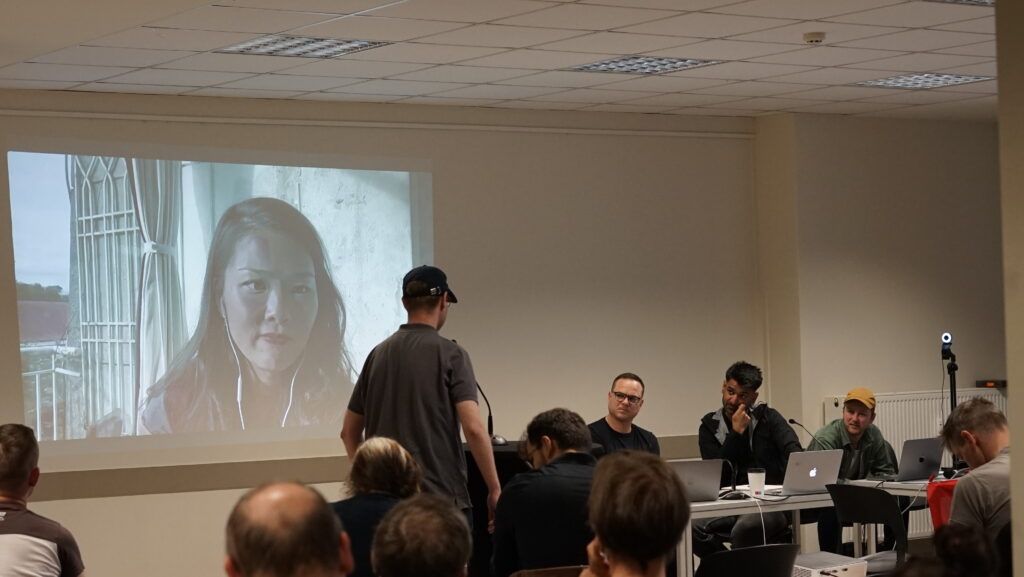
Lectures on Saturday morning and afternoon, as well as on Sunday, dealt more comprehensively with anti-imperialism and national liberation, looking at different countries and regions of the world. Alexei Albu (Borotba, Ukraine) offered an insight into the role of the incorporation of the People’s Republics by Russia and their significance for the struggles and developments in eastern Ukraine. In the KO colloquium on the characterization of Russian capitalism, the results of the work of a group of comrades dealing with the historical development of Russian capitalism after the counter-revolution were discussed. The war in Ukraine was the subject of Pit Simon’s (Party of the Left) and Ingo Höhmann’s (retired NVA lieutenant colonel) presentation from the perspective of war theory and military practice. Sabine Kebir (author) gave a comprehensive overview of the situation in the Middle East and Africa. Tinks Chak (Dongsheng News, China) spoke about the Chinese fight against poverty, and the role of the Communist Party and mass mobilization.
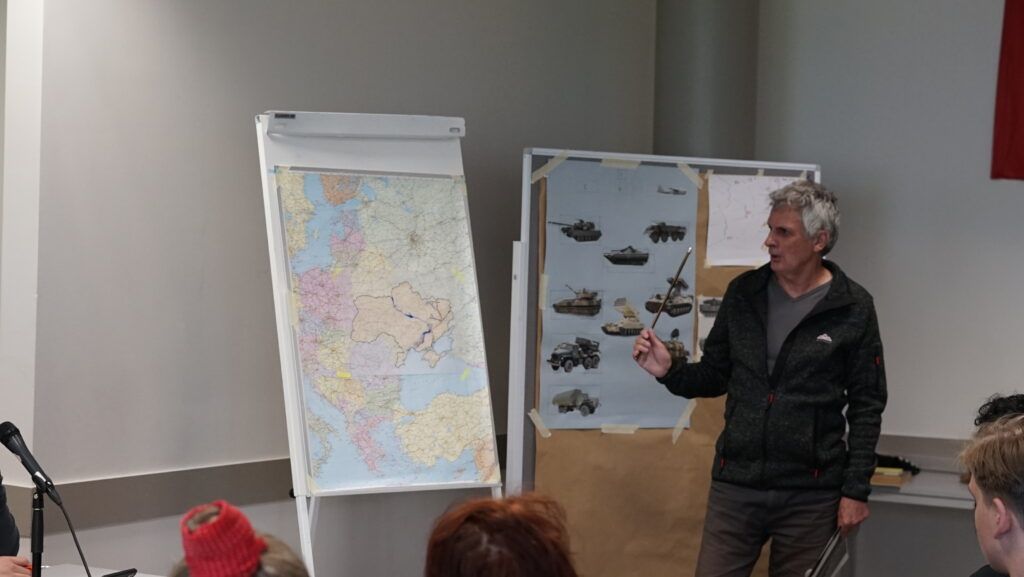
In the podiums on Saturday and Sunday, a number of questions and problems became apparent that show what work we still have to do in order to be able to place ourselves as communists at the forefront of class struggles. On the one hand, this concerns the question of the assessment of German imperialism and its relationship to the USA. There was agreement on the dangers posed by the Western imperialists and also on the threat of fascization in Germany. However, there were clear differences in the attempts to strategically translate this situation: how do we fight against NATO aggression and who are our allies in this struggle? It is therefore a question of defining our field of struggle. Willi Langenthaler and Klaus Hartmann advocated a position that assumes the extreme dependence of German imperialism and the need for the broadest possible social front against NATO, across political boundaries, and discussed whether such a front could emerge under the labels „down with NATO“ or „never again war and never again fascism“, on the basis of which communists could push and expose right-wingers? Or is it rather the case that they play a dangerous integrative function for a similar course of war to that of established parties and that our weak roots make us more likely to become a pawn of the right through such broad alliances?
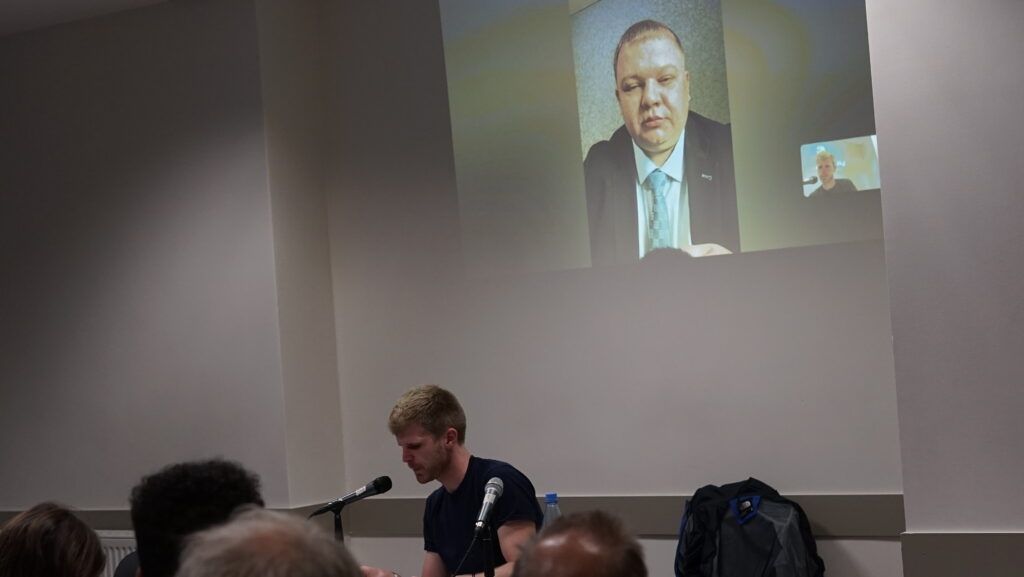
These different assessments were also evident during the closing panel of the congress. Klaus Hartman, for example, said that it was objectively a good thing if the AfD spoke out against the war, sanctions and anti-Russian racism. This would signal to the public that there is also the possibility of articulating oneself differently from the established parties. It should be our task on the streets to expose these forces, but to do so we would have to herd them forwards and lose our fear of contact. Harri Grünberg focused on a broad mass party as the most important task in Germany. Broad sections would have to rally on an anti-monopolistic basis and the task of the communists would have to be to combat social democratic tendencies in this context. This alone would make it possible to gain mass influence in Germany. Susann Witt-Stahl pointed out the dangers of not being able to correctly assess the balance of power due to the lack of a concept of fascism. As a result, slogans such as „never again war and never again fascism“ as a basis for alliances would turn into their opposite in practical struggles.
Anti-imperialist struggle in practice
The role and character of national liberation movements was the subject of the foundation workshop on the national question and neo-colonialism. The participants discussed texts by Stalin, Mao and Nkrumah, the question of the nation, the support of independence movements by communists and the connection between national liberation and the struggle for socialism. Hans Bauer (DKP and grh) gave a more detailed insight into the discussions in the GDR about the struggle for national independence and the role of the socialist states for the liberation movements.
Anyone who takes up the fight against these well-organized criminals, who opposes the warmongers of NATO, must expect isolation and repression. They will be mocked or vilified. Anyone who fights for the freedom of the oppressed will be persecuted by their legal apparatus. In his presentation at the congress, Zaid Abdulnasser from Samidoun described starkly the violence that is being used against the Palestinian resistance.
The massive political pressure of pro-Zionist German politics is trying to nip any movement of solidarity with the just struggle of the Palestinian people in the bud. It was not without reason that Susann Witt-Stahl emphasized on the closing podium of the congress the responsibility of the so-called anti-Germans for the deep anchoring of pro-imperialist positions in the camp of left-wing organizations and the trade unions after the counter-revolution. The reaction of left-wing circles to the war of aggression in Yugoslavia and the war against Russia have further exacerbated this tendency.
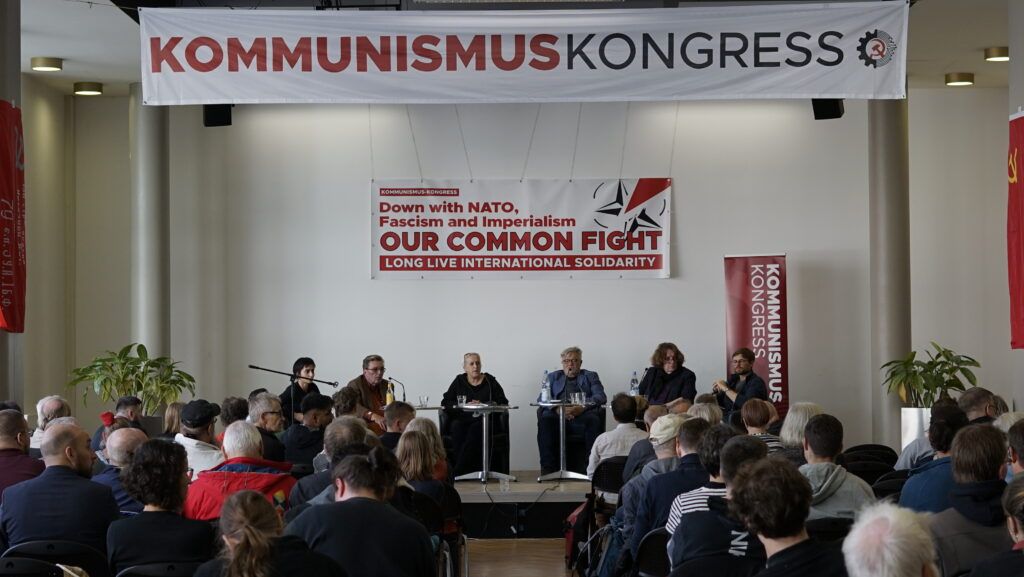
The Communism Congress 2023 has clearly and sharply opposed this, sending an uncompromising signal of solidarity with the struggling Palestinian people and oppressed peoples worldwide. Last but not least, we made this clear in our congress resolution:
The fight against the imperialist oppressors is an international struggle, it must be a common struggle of the oppressed peoples and the working class in the imperialist centers. We know that those in power in the centers use all means of terror and destruction against our comrades in the oppressed countries. Many freedom fighters fell victim to their assassinations. And even today many are persecuted and threatened with death.
The Communism Congress sends internationalist greetings to all fighters against colonialism, oppression and imperialism.
Long live international solidarity – the tenderness of peoples!
